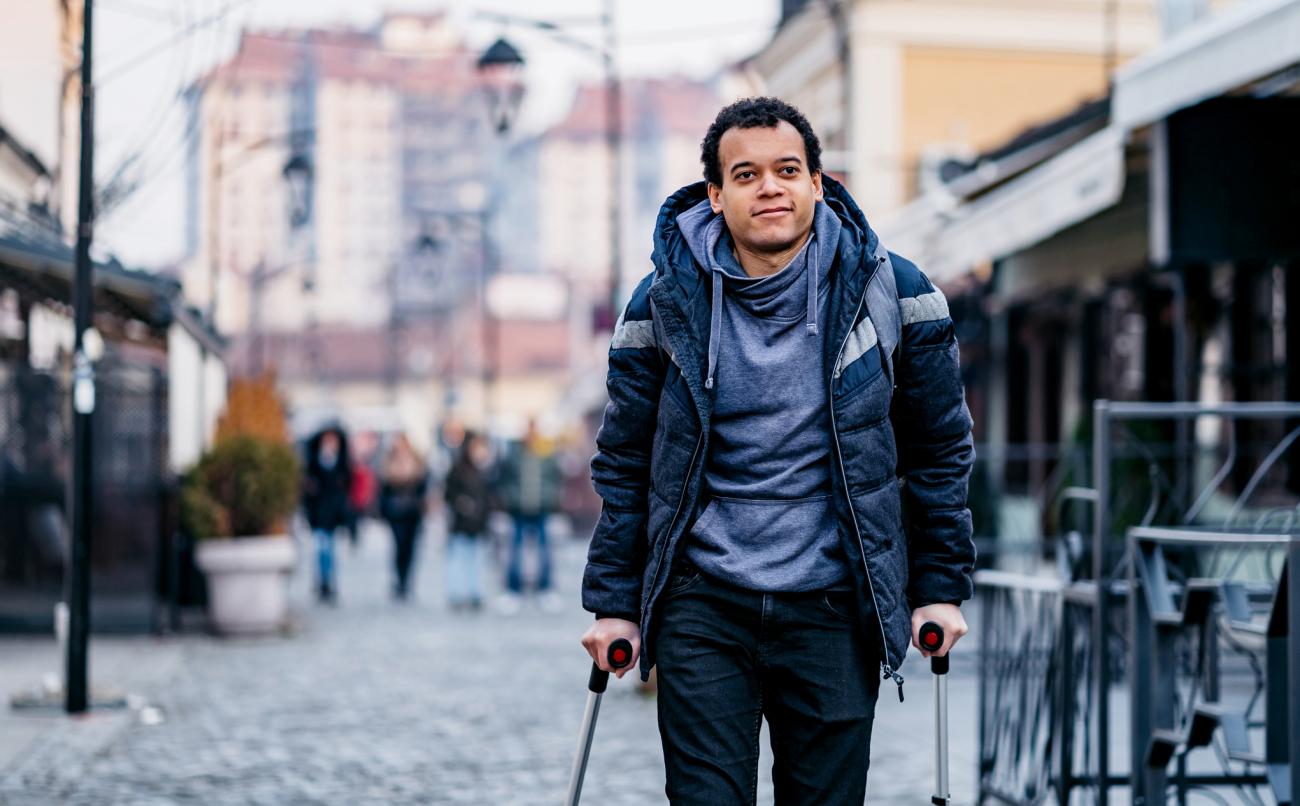
Post-injury multidisciplinary care is needed for patients to accept both physical and psychological impacts.
Research conducted by team members from the Division of Orthopaedic Trauma at Vancouver General Hospital and the University of British Columbia (UBC) is re-writing the book on how long it takes patients to recover — both functionally and physically — from the most severe of orthopaedic injuries: pelvic and acetabular fractures.
Of the more than 20 clinical studies published by the team in recent years, one in particular received international attention, earning a 2020 Highlight Paper Award from the Orthopaedic Trauma Association. The study was recently published in the March 2022 issue of the Journal of Orthopaedic Trauma.
The award-winning clinical study looked at 113 patients with surgically treated pelvic fractures. The long-term functional outcome measurements revealed something that was previously under-reported, but critical to patient wellbeing.
“While physical function will continue to improve well beyond a year, the urinary and sexual dysfunctions that are exceedingly common after these fractures, do not,” says Dr. Kelly Lefaivre, a Vancouver Coastal Health Research Institute (VCHRI) orthopaedics investigator and associate professor in the Department of Orthopaedics at UBC. “They will be permanent conditions.”

Addressing ongoing impacts
The impact of pelvic and acetabular trauma continues to affect patients long after X-rays say their bones are healed. Mental health challenges, such as emotional stress, depression and family strain, combined with chronic pain and the financial challenges related to long-term unemployment, make the recovery journey especially difficult for patients with these injuries.
“We have learned that pelvic and acetabular injuries can have significant quality-of-life impacts for patients.”
The trajectory of recovery for these injuries typically requires a broader team of care providers to work with patients through their recovery phase. As such, Dr. Lefaivre has two take-aways for orthopaedic trauma surgeons caring for patients who have sustained pelvic and acetabular traumas.

“If I could stress anything, it’s that they must screen for urinary and sexual dysfunction with every one of their patients,” says Lefaivre. “If they are present, ongoing physical therapy and time will not cure them. Other experts such as urologists as well as sexual and mental health providers should be brought into that patient’s care.”
Longitudinal data reveals rich orthopaedic learnings
Pelvic and acetabular fractures aside, the overall body of research generated since 2007 by the VCHRI/UBC orthopaedic trauma team has established it as one of the premier research groups of its kind in the country. It’s a reputation that owes largely to the existence of their ongoing orthopaedic trauma database, a repository of data that has followed patient recovery at Level 1 trauma centres in British Columbia for almost 40 years.
“The research we have done in how to measure outcomes in orthopaedic trauma patients has been broadly influential in the treatment of orthopaedic trauma overall.”
Not only has this rich source of longitudinal data contributed to these most recent findings on pelvic and acetabular fractures, but it has also contributed greatly to the overall body of knowledge pertaining to orthopaedic trauma, including the fact that patients continue to recover their functionality for up to five years post-injury.
“We have moved away from the premise that after three months the X-rays show the bone is healed, and the patient is fine,” says Lefaivre. “This has changed the conversations we have with patients about orthopaedic trauma and the trajectory of their recovery,”


